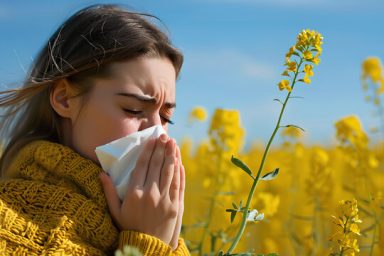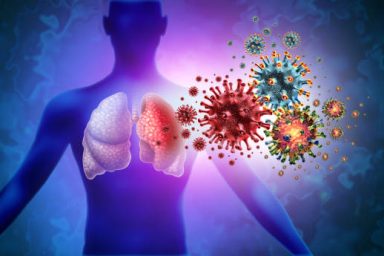- Home
- About Us
- Services
- Treatments
- Acid Reflux
- Allergic Rhinitis
- Alcoholic Fatty Liver
- Ankylosing Spondylitis
- Anxiety / Stress
- Arthritis
- Asthma
- Cervical Spondylitis
- Celiac Infection
- Colitis
- Constipation
- Dermatitis
- Detox Programme
- Diabetes (Madhumeha)
- Hair Fall
- Headache
- Hormonal Imbalance
- Hypertension
- Insomnia
- Irritable Bowel Syndrome
- Lungs Disease
- Migraine
- Neurological Disorder
- Non Alcoholic Fatty Liver
- Obesity Management
- Pain Management
- PCOD
- PCOS
- Sciatica Pain
- Sinusitis
- Skin Disorder
- Slip Disc
- Stress Management
- Thyroid
- Weight Management
- Techno-Ayurveda
- Media
- Blog
- Contact Us

Asthma
Understanding Asthma
In Ayurveda, asthma (known as “Tamak Shwas”) is considered a disorder of the Prana Vayu (life force) and is primarily associated with imbalances in the Vata and Kapha doshas. The condition arises when the Prana Vayu becomes disturbed, leading to irregular breathing patterns, while excess Kapha causes mucus production, leading to airway obstruction and inflammation.
Asthma is also linked to an accumulation of Ama (toxins) in the body, which can block the proper flow of air in the lungs and lead to chronic inflammation. Therefore, the Ayurvedic approach to asthma treatment focuses on balancing the doshas, clearing toxins, and promoting the overall health of the respiratory system.
Symptoms of Asthma
1. Shortness of Breath
2. Chest Tightness
3. Difficulty Sleeping Due to Coughing or Breathlessness
4. Coughing, Particularly at Night or In The Early Morning
5. Wheezing
6. Rapid Breathing
7. Fatigue During Physical Activity
Common Causes of asthma

genetic
Asthma can be caused by genetic factors that affect immune system regulation, making the airways more sensitive to environmental triggers. Inherited gene variations, particularly those influencing allergic reactions and inflammation, increase the risk of developing asthma in susceptible individuals.

Environmental Allergens
Environmental allergens, such as pollen, dust mites, pet dander, and mold, can trigger asthma by causing inflammation and narrowing of the airways. Repeated exposure to these allergens in sensitive individuals leads to asthma symptoms and exacerbations over time.

Respiratory Infections
Impaired respiratory function, such as increased airway inflammation, bronchoconstriction, or hyperreactivity, can contribute to asthma. These factors make the airways more sensitive to triggers, leading to difficulty breathing, wheezing, and other asthma symptoms, particularly during physical exertion or illness.

Exposure To Tobacco Smoke
Tobacco smoking can damage the lungs and airways, increasing inflammation and making them more prone to asthma. Smoke exposure irritates respiratory tissues, leading to narrowed airways, heightened sensitivity, and an increased risk of developing asthma or worsening existing symptoms.
Panchakarma Ayurvedic Treatment for Asthma
Asthma, a chronic condition characterized by inflammation and narrowing of the airways, can be exacerbated by environmental factors, allergies, and emotional stress. In Ayurveda, asthma (known as Tamak Shwas) is primarily seen as a result of imbalances in the Vata and Kapha doshas, along with the accumulation of Ama (toxins) that clog the airways and make breathing difficult. Ayurveda offers a holistic approach to managing asthma, and Panchakarma is one of the most effective treatments for detoxifying the body, balancing the doshas, and alleviating the symptoms of asthma.
Herbal Remedies for Asthma
In addition to Panchakarma treatments, Ayurvedic herbs are an integral part of managing asthma. These herbs help reduce inflammation, clear mucus, improve lung capacity, and enhance overall respiratory function. Some commonly used herbs include:
- Vasaka (Adhatoda Vasica): A potent bronchodilator that helps clear mucus and reduce inflammation in the respiratory tract.
- Tulsi (Holy Basil): Known for its anti-inflammatory and immune-boosting properties, Tulsi helps open the airways and supports lung health.
- Pippali (Long Pepper): Known for its ability to open the respiratory passages, improve lung capacity, and expel mucus.
- Ginger: Anti-inflammatory and a natural expectorant that helps clear the airways and reduce bronchial inflammation.
- Licorice (Yashtimadhu): Soothes the respiratory system, reduces inflammation, and helps expel mucus from the lungs.
These herbs are typically used in various forms such as powders, decoctions, syrups, or capsules, depending on the individual’s needs.
Lifestyle and Dietary Recommendations for Asthma
- Diet: Focus on a warm, light, and easily digestible diet that is low in dairy, fried foods, and cold beverages. Spices like ginger, black pepper, turmeric, and garlic help clear mucus and reduce inflammation.
- Breathing Exercises (Pranayama): Techniques such as Anulom Vilom (alternate nostril breathing), Kapalbhati (skull shining breath), and Bhastrika (bellows breath) can help improve lung capacity, regulate breathing, and reduce asthma symptoms.
- Exercise: Gentle physical activities like yoga and walking are recommended to strengthen the lungs and improve overall circulation.
- Stress Management: Practices like meditation, mindfulness, and relaxation techniques can help manage stress, which is often a trigger for asthma attacks.
FAQs of asthma
Allergens, pollution, cold air, smoke, and respiratory infections can trigger asthma symptoms.
Asthma cannot be cured but can be managed with medication and lifestyle changes.
Intense exercise can trigger symptoms in some people, but with proper management, physical activity is generally safe.
